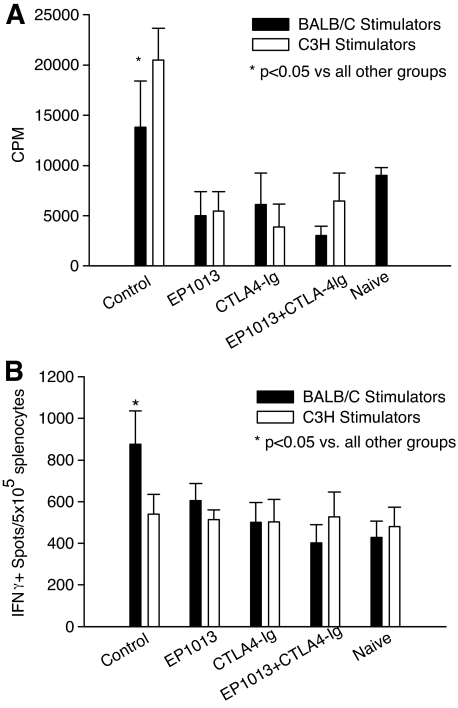FIG. 3.
EP1013 therapy inhibits early allogeneic T-cell responses, both as a monotherapy and in combination with CTLA4-Ig. Transplanted animals were sacrificed on day 11 post-transplant for ex vivo immune analysis using MLR and IFN-γ ELISPOT assays to measure the allogeneic immune response. A: MLR assays revealed that splenocytes harvested from vehicle-treated (“control”) recipients reacted with a nearly twofold increase in proliferation to both donor and third-party stimulators as compared with naïve animals (P < 0.05). In contrast, splenocytes harvested with animals treated with EP1013, CTLA4-Ig, or EP1013+CTLA4-Ig proliferated at rates that were comparable to naïve animals, irrespective of the stimulator source (P < 0.05 vs. control for all treatment groups). B: IFN-γ ELISPOT assays demonstrated that splenocytes from vehicle-treated control animals mounted a robust donor-specific allogeneic IFN-γ response, with a significant increase in number of spots compared with naïve animals (P < 0.05 by ANOVA). Prior treatment with EP1013, CTLA4-Ig, or EP1013+CTLA4-Ig markedly reduced the number of IFN-γ–secreting alloreactive splenocytes, to levels comparable to those observed in naïve animals (P < 0.05 for each treatment group vs. control by ANOVA). For these assays, n = 3–4 animals per treatment group were analyzed in triplicate in two separate experiments.

